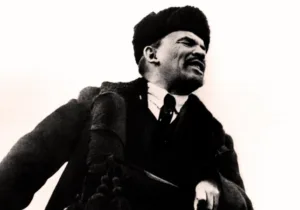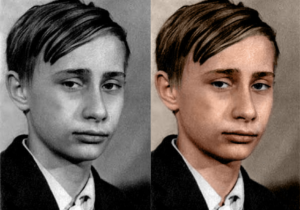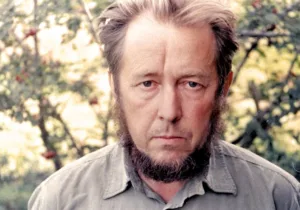Quickly dubbed the “Evil Empire” speech, Ronald Reagan’s “Remarks at the Annual Convention of the National Association of Evangelicals in Orlando, Florida” of March 8, 1983, were plain speaking and straight truth about the Soviet Union.
Among Cold War presidential statements, this powerful speech ranks with Reagan’s 1982 British Parliament address throwing Marxism-Leninism on the “ash-heap of history” and his 1987 remarks at then-divided Berlin’s Brandenburg Gate—“Mr. Gorbachev, tear down this wall!”—as well as Harry Truman’s 1947 Truman Doctrine address before a joint session of Congress explicating the two “ways of life” in the East-West conflict and John Kennedy’s 1963 “Ich bin ein Berliner” remarks in front of city hall in West Berlin. We should also acknowledge a formative contribution by an out-of-office foreign politician: Winston Churchill’s 1946 “sinews of peace” speech about the “iron curtain” descending across Europe.
Reagan’s “Evil Empire” speech provides a model of rhetoric that explained and advanced American grand strategy and policy. On these terms, this speech and the Truman Doctrine address rank highest in the above exalted company. Reagan’s words and delivery are striking in the ground that he covers: the centrality of regime distinctions, religious faith as the safeguard of American democracy and the West, the true meaning of freedom, religious liberty and the rule of law, the dignity of the human person, the sacredness of sex, America’s past sins, peace through strength, communism and totalitarianism, and good versus evil at the level of politics, philosophy, and theology; as well as prayer in schools, abortion on demand, infanticide, the Hyde Amendment, START and arms reductions, the nuclear freeze, and U.S. military strength in regard to domestic and foreign policy.
Reagan primarily addressed the problem of evil. The most famous passages say it all. While urging prayers for those “who live in that totalitarian darkness,” he said “that while they preach the supremacy of the state, declare its omnipotence over individual man, and predict its eventual domination of all peoples on the Earth, they are the focus of evil in the modern world.” Between offering quotes from C.S. Lewis and Whittaker Chambers, Reagan called on evangelical Christian religious leaders “to beware the temptation of pride—the temptation of blithely declaring yourselves above it all and label both sides equally at fault, to ignore the facts of history and the aggressive impulses of an evil empire, to simply call the arms race a giant misunderstanding and thereby remove yourself from the struggle between right and wrong and good and evil.”
Traditional theology defines evil as the privation of the good. Reagan understood communism—and totalitarianism, the genus from which it derived—as the privation of the good. He identified the Soviet Union as “the focus of evil in the modern world.” He did not mean that concentrated evil had never existed previously and that there would never again be total evil. Even though he was an optimistic Christian by faith and temperament, he recognized evil as a real and permanent aspect of the human condition that had to be resisted and rejected, and could only be extinguished through the divine light of truth.
This “focus of evil in the modern world” and its earthly empire opposed the eternal good. In Reagan’s words, Marxist-Leninists “repudiate all morality that proceeds from supernatural ideas—that’s their name for religion.” Reagan knew God as the good, the source from which all goodness flows. Explicitly built on atheism, communism denies God and thus all that is good and right.
Reagan wanted his audience to understand the full meaning and high stakes of the Cold War. He broke the realpolitik rules of détente that prohibited moral comments about another state’s regime. Instead, he hearkened back to his early mentor, Truman. Like his great Cold War predecessor, Reagan saw that U.S. military strength was necessary, but insufficient. Echoing Truman, Reagan said, “The real crisis we face today is a spiritual one; at root, it is a test of moral will and faith.” His message resonated everywhere, even behind the Iron Curtain. “Finally, a spade had been called a spade,” Natan Sharansky—then a prisoner in the Siberian Gulag—noted years later after he was free. “President Reagan had from that moment made it impossible for anyone in the West to continue closing their eyes to the real nature of the Soviet Union.”
Forty years on, Reagan’s moral and political insights remain accurate and fresh. Although the Soviet Union—the “focus of evil in the modern world” at the time—is no more, its noxious legacy lives on in Putin’s Russia, as communist and other totalitarian states still practice evil at home and abroad. Indeed, as long as human nature is unchanging, Reagan’s truth about evil will never age.






 Sponsor a student for Christianity & National Security 2024
Sponsor a student for Christianity & National Security 2024